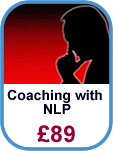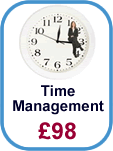Wednesday 27 June 2007
Training Game Idea - Let's play poker!
Here's another training game idea called, 'Let's play Poker!'
Sometimes getting people to answer questions and get involved during training can be difficult. This game is perfect for overcoming this issue.
At the start of the session, advise the participants that you are going to hand out a playing card each time you get a correct answer to one of the questions you pose throughout the session. This card then becomes part of their 'hand' and at the end of the session you will all play a game of poker. The person with the best hand wins a prize.
The participants soon realise that to get the best hand and stand a chance of winning a prize they will have to answer some questions! You'll never have a quiet group again!
Visit Trainer Bubble to download a free instruction sheet for this game.
Sometimes getting people to answer questions and get involved during training can be difficult. This game is perfect for overcoming this issue.
At the start of the session, advise the participants that you are going to hand out a playing card each time you get a correct answer to one of the questions you pose throughout the session. This card then becomes part of their 'hand' and at the end of the session you will all play a game of poker. The person with the best hand wins a prize.
The participants soon realise that to get the best hand and stand a chance of winning a prize they will have to answer some questions! You'll never have a quiet group again!
Visit Trainer Bubble to download a free instruction sheet for this game.
Sunday 17 June 2007
Influencing Sales via 'The Contrast Principle'
My partner and I had taken my son, Quinn, out for a trip to the zoo recently and as we entered we came across the usual ‘souvenir’ store complete with an array of animal related toys. Of course my son went crazy at this point and wanted everything. I explained that we could return after our walk around the zoo and that I would consider buying him something then. Although disappointed, he seemed to agree that this was fair and we managed to prise him away and into the zoo.
We had a fantastic time, looking at all the animals and stopping for a bite to eat. However, as we drew closer to the exit I began to remember my promise about the souvenir store. It seems Quinn had not forgotten either. “Dad?” He said, as he finished the remains of an ice cream “How much money can I have for toys?” I contemplated this for a second or two and said, “I think £5 should be enough”. “£5!” He said, “That’s nothing, how about £200?” “£200 is a lot of money for toys son, even for you. In fact, that would buy up the whole souvenir shop. How about £10?” His response was immediate “Ok dad”.
It was only when I reached the souvenir shop that I realised my mistake. I had been duped by my son and what is known as “The contrast Principle”. Of course, after my sons initial request of £200, the £10 counter offer didn’t seem so bad, yet he had managed to double his initial request.
The contrast principle is a powerful way to increase the odds of getting what you want. In fact, once you recognise it, you realise it is used in many different scenarios and is yet another example of our brain using a mental shortcut i.e. ‘The offer must be fair, it is much less than the other’.
Car salesmen demonstrate an example of the contrast principle used in a business context. They will sell us a car and only after you have accepted the purchase will they start trying to sell you the extras (Metallic paint, Sat Nav etc.)
This can also be seen in a clothing retailers, common sense would tell us that it would be easier to try and sell a customer a small item (like a belt) and then ‘once they are warmed up’, try to sell them a larger item. However, this actually works better in reverse. The idea is that once the customer has bought the expensive sweater, the cheaper belt and t-shirt don’t seem as much...in contrast.
This excerpt is included in the Trainer Bubble training course material 'The Power of Influence'. Download this fantastic training resource at Trainer Bubble
We had a fantastic time, looking at all the animals and stopping for a bite to eat. However, as we drew closer to the exit I began to remember my promise about the souvenir store. It seems Quinn had not forgotten either. “Dad?” He said, as he finished the remains of an ice cream “How much money can I have for toys?” I contemplated this for a second or two and said, “I think £5 should be enough”. “£5!” He said, “That’s nothing, how about £200?” “£200 is a lot of money for toys son, even for you. In fact, that would buy up the whole souvenir shop. How about £10?” His response was immediate “Ok dad”.
It was only when I reached the souvenir shop that I realised my mistake. I had been duped by my son and what is known as “The contrast Principle”. Of course, after my sons initial request of £200, the £10 counter offer didn’t seem so bad, yet he had managed to double his initial request.
The contrast principle is a powerful way to increase the odds of getting what you want. In fact, once you recognise it, you realise it is used in many different scenarios and is yet another example of our brain using a mental shortcut i.e. ‘The offer must be fair, it is much less than the other’.
Car salesmen demonstrate an example of the contrast principle used in a business context. They will sell us a car and only after you have accepted the purchase will they start trying to sell you the extras (Metallic paint, Sat Nav etc.)
This can also be seen in a clothing retailers, common sense would tell us that it would be easier to try and sell a customer a small item (like a belt) and then ‘once they are warmed up’, try to sell them a larger item. However, this actually works better in reverse. The idea is that once the customer has bought the expensive sweater, the cheaper belt and t-shirt don’t seem as much...in contrast.
This excerpt is included in the Trainer Bubble training course material 'The Power of Influence'. Download this fantastic training resource at Trainer Bubble
Thursday 7 June 2007
Sales Culture – Beware of the broken window
There’s a park I walk through on the way home each day. It used to be a very pretty park with vast areas of green freshly clipped grass, commemorative benches with gleaming plaques, pristine toilets that won countless awards, trees that have been there for decades and freshly painted playground equipment for the kids to climb over.
About a year ago I happened to notice that one of the windows of the toilets had been smashed, I could have been wrong, but it looked like someone had thrown a stone through it. I tutted to myself and continued on my way. The next day as I was walking, I noticed that someone had added to the broken window with another and someone else had scrawled their name next to it in giant, sprayed on letters.
Over the year, things have got worse. The green grass has yellowed and is littered with rubbish, the benches have become worn and broken in places and the playground is more rust than paint and seems held together by the marker pen graffiti.
A sad tale of urban decay you may be thinking, but what the heck has it got to do with sales?
The thing that tripped off this series of events was the broken window. I would argue that had that broken window been fixed the day after it’s breaking then the person who broke the second window and left graffiti would not have done so. Consequently the park would not have become an area where it was ‘ok’ to treat with disrespect and it would not have fallen into steady decline.
Again I hear you thinking, I get it, but what the heck has that got to do with sales?
Let’s say you have a team and in the majority they are pretty successful with sales. They are all doing ok and you can see that their skills are developing progressively. However, there is one member of the team that is not on board with the concept. They are disruptive, they complain, they challenge every product by comparing it negatively against competitors and they do their utmost to undermine the process at every opportunity.
Many managers will ignore this person in the hope that they will get so fed up that they move on to another part of the business or even to the competitors they so admire. They’ll invest little time in them and ignore their development. This is a mistake. The person we have described is your ‘broken window’ and all the time they are left ‘un-mended’ they will encourage the same negative behaviour in others, until your business looks as tired and worn as the park I go through every night.
Other people will start to model the behaviours displayed by the broken window and you will notice a steady decline in sales development, after all, ’if they can get away with it, maybe I can too’. It is far easier to change the methods of one than it is to alter the habits of one hundred.
I would even go further than this and say that they are the catalyst and, if turned around, they will move your culture of sales on to the next level. When negative obstructers, who generally court a lot of influence, become flag wavers for the business, you have found a method of ensuring that things happen even when the boss isn’t looking.
Like mending a broken window, it’s not fun and nobody wants to spend the time, money and effort on it, but it’s a lot better than having to re-develop the whole damn park.
Trainer Bubble provide some very useful sales training resources, why not visit and see what we have? Trainer Bubble - Training Resources
About a year ago I happened to notice that one of the windows of the toilets had been smashed, I could have been wrong, but it looked like someone had thrown a stone through it. I tutted to myself and continued on my way. The next day as I was walking, I noticed that someone had added to the broken window with another and someone else had scrawled their name next to it in giant, sprayed on letters.
Over the year, things have got worse. The green grass has yellowed and is littered with rubbish, the benches have become worn and broken in places and the playground is more rust than paint and seems held together by the marker pen graffiti.
A sad tale of urban decay you may be thinking, but what the heck has it got to do with sales?
The thing that tripped off this series of events was the broken window. I would argue that had that broken window been fixed the day after it’s breaking then the person who broke the second window and left graffiti would not have done so. Consequently the park would not have become an area where it was ‘ok’ to treat with disrespect and it would not have fallen into steady decline.
Again I hear you thinking, I get it, but what the heck has that got to do with sales?
Let’s say you have a team and in the majority they are pretty successful with sales. They are all doing ok and you can see that their skills are developing progressively. However, there is one member of the team that is not on board with the concept. They are disruptive, they complain, they challenge every product by comparing it negatively against competitors and they do their utmost to undermine the process at every opportunity.
Many managers will ignore this person in the hope that they will get so fed up that they move on to another part of the business or even to the competitors they so admire. They’ll invest little time in them and ignore their development. This is a mistake. The person we have described is your ‘broken window’ and all the time they are left ‘un-mended’ they will encourage the same negative behaviour in others, until your business looks as tired and worn as the park I go through every night.
Other people will start to model the behaviours displayed by the broken window and you will notice a steady decline in sales development, after all, ’if they can get away with it, maybe I can too’. It is far easier to change the methods of one than it is to alter the habits of one hundred.
I would even go further than this and say that they are the catalyst and, if turned around, they will move your culture of sales on to the next level. When negative obstructers, who generally court a lot of influence, become flag wavers for the business, you have found a method of ensuring that things happen even when the boss isn’t looking.
Like mending a broken window, it’s not fun and nobody wants to spend the time, money and effort on it, but it’s a lot better than having to re-develop the whole damn park.
Trainer Bubble provide some very useful sales training resources, why not visit and see what we have? Trainer Bubble - Training Resources
Subscribe to:
Posts (Atom)






























